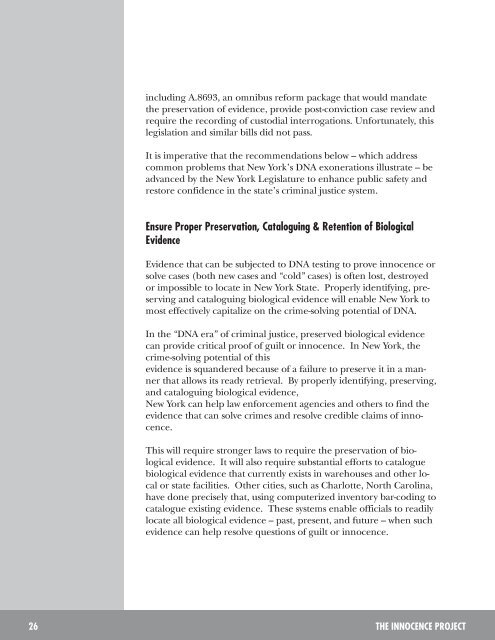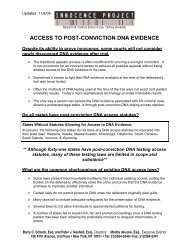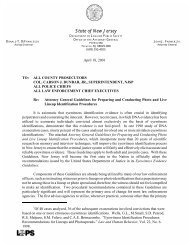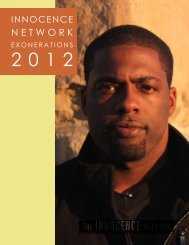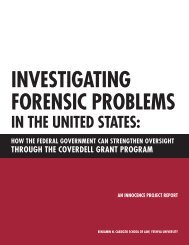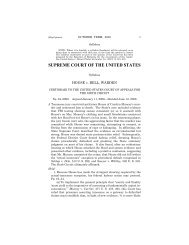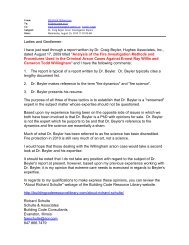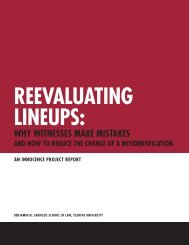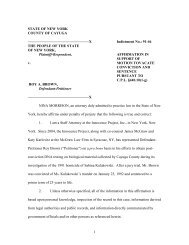Lessons Not Learned - The Innocence Project
Lessons Not Learned - The Innocence Project
Lessons Not Learned - The Innocence Project
Create successful ePaper yourself
Turn your PDF publications into a flip-book with our unique Google optimized e-Paper software.
including A.8693, an omnibus reform package that would mandate<br />
the preservation of evidence, provide post-conviction case review and<br />
require the recording of custodial interrogations. Unfortunately, this<br />
legislation and similar bills did not pass.<br />
It is imperative that the recommendations below – which address<br />
common problems that New York’s DNA exonerations illustrate – be<br />
advanced by the New York Legislature to enhance public safety and<br />
restore confidence in the state’s criminal justice system.<br />
ensure Proper Preservation, Cataloguing & Retention of Biological<br />
evidence<br />
Evidence that can be subjected to DNA testing to prove innocence or<br />
solve cases (both new cases and “cold” cases) is often lost, destroyed<br />
or impossible to locate in New York State. Properly identifying, preserving<br />
and cataloguing biological evidence will enable New York to<br />
most effectively capitalize on the crime-solving potential of DNA.<br />
In the “DNA era” of criminal justice, preserved biological evidence<br />
can provide critical proof of guilt or innocence. In New York, the<br />
crime-solving potential of this<br />
evidence is squandered because of a failure to preserve it in a manner<br />
that allows its ready retrieval. By properly identifying, preserving,<br />
and cataloguing biological evidence,<br />
New York can help law enforcement agencies and others to find the<br />
evidence that can solve crimes and resolve credible claims of innocence.<br />
This will require stronger laws to require the preservation of biological<br />
evidence. It will also require substantial efforts to catalogue<br />
biological evidence that currently exists in warehouses and other local<br />
or state facilities. Other cities, such as Charlotte, North Carolina,<br />
have done precisely that, using computerized inventory bar-coding to<br />
catalogue existing evidence. <strong>The</strong>se systems enable officials to readily<br />
locate all biological evidence – past, present, and future – when such<br />
evidence can help resolve questions of guilt or innocence.<br />
26 THe InnoCenCe PRoJeCT


